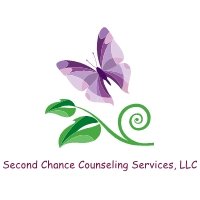Overcoming Adverse Childhood Experiences and Loss: Strategies for Healing and Resilience
Adverse childhood experiences (ACEs) and loss can have profound and long-lasting effects on an individual's mental, emotional, and physical well-being. These experiences may include abuse, neglect, household dysfunction, traumatic events, and the loss of loved ones. However, it is important to remember that healing and resilience are possible, even in the face of such challenges. This article explores strategies for overcoming ACEs and loss, offering hope and guidance for those struggling with these difficult experiences.
Understanding Adverse Childhood Experiences and Loss
Adverse childhood experiences encompass a wide range of traumatic events that occur in childhood and can have lasting effects on physical and mental health. These experiences are associated with an increased risk of negative outcomes, including mental health disorders, substance abuse, and chronic health conditions. Loss, whether through death, separation, or other circumstances, can also have a profound impact on an individual's well-being, leading to feelings of grief, loneliness, and despair.
Strategies for Overcoming Adverse Childhood Experiences and Loss
1. Seek Therapy and Support: One of the most important steps in overcoming ACEs and loss is to seek professional therapy and support. Therapy can provide a safe space to process emotions, gain insight into past experiences, and develop coping strategies for dealing with trauma and loss. Support groups can also be invaluable in connecting with others who have had similar experiences and finding a sense of community and belonging.
2. Practice Self-Care: Self-care is essential for healing from ACEs and loss. This may include engaging in activities that bring joy and relaxation, such as exercise, meditation, hobbies, or spending time in nature. Taking care of your physical health through proper nutrition, sleep, and regular medical check-ups is also important in promoting overall well-being.
3. Build Resilience: Resilience is the ability to bounce back from adversity and thrive in the face of challenges. Building resilience involves developing coping skills, problem-solving abilities, and a positive mindset. It also involves cultivating healthy relationships, setting boundaries, and practicing self-compassion.
4. Engage in Healing Therapies: Various healing therapies can complement traditional therapy in overcoming ACEs and loss. These may include art therapy, music therapy, yoga, mindfulness practices, and other holistic modalities that address the mind-body connection and promote emotional healing.
5. Connect with Culture and Identity: For individuals who have experienced ACEs and loss, connecting with their cultural heritage and identity can be a source of strength and resilience. This may involve participating in cultural activities, rituals, or traditions that honor one's heritage and provide a sense of belonging and identity.
Conclusion
Overcoming adverse childhood experiences and loss is a complex and challenging journey, but it is possible with the right support, strategies, and mindset. By seeking therapy, practicing self-care, building resilience, engaging in healing therapies, and connecting with culture and identity, individuals can heal from past traumas and losses and cultivate a sense of hope and resilience for the future. Remember, you are not alone in your journey, and there is always help and support available to guide you towards healing and growth.
References
Felitti, V. J., et al. (1998). Relationship of childhood abuse and household dysfunction to many of the leading causes of death in adults: The Adverse Childhood Experiences (ACE) Study. American Journal of Preventive Medicine, 14(4), 245-258.
Masten, A. S. (2001). Ordinary magic: Resilience processes in development. American Psychologist, 56(3), 227-238.
National Institute of Mental Health. (2018). Coping with grief after community violence. Retrieved from https://www.nimh.nih.gov/health/publications/coping-with-grief-after-community-violence/index.shtml
APA. (2020). Stress and coping. American Psychological Association. Retrieved from https://www.apa.org/topics/stress-coping
